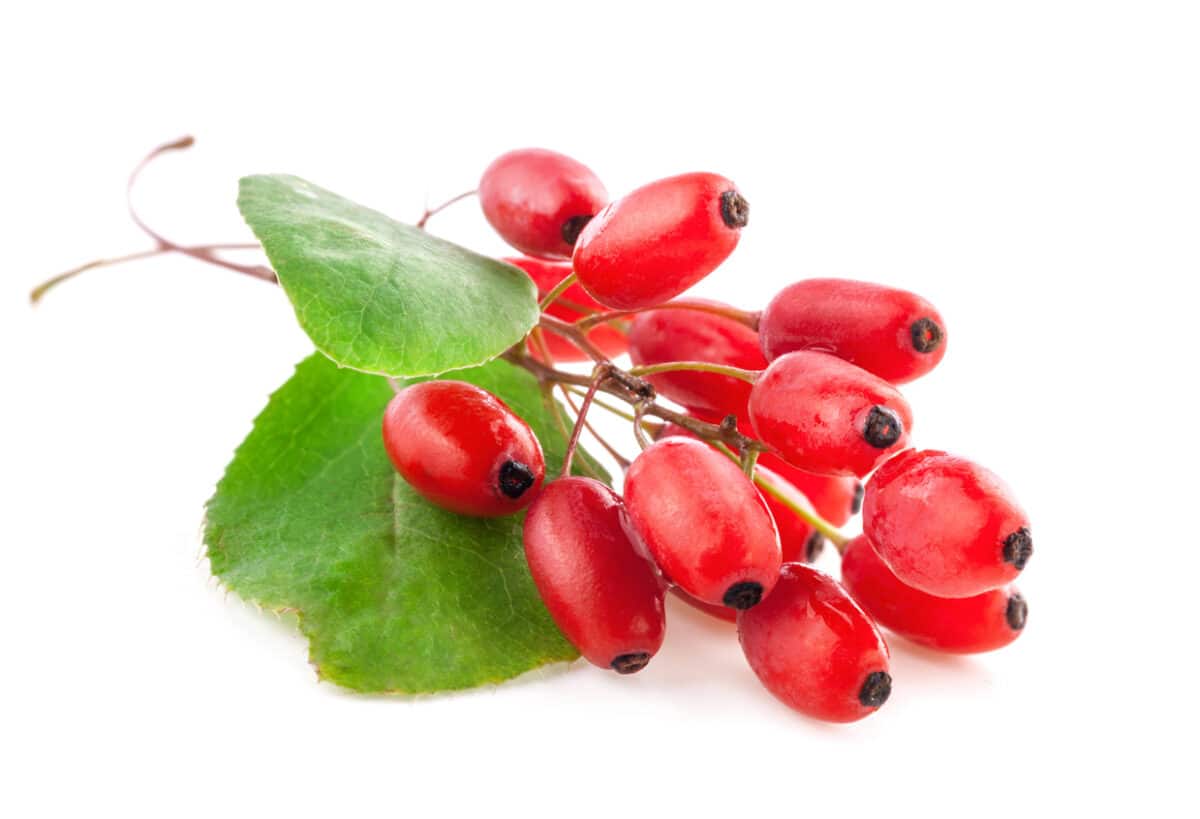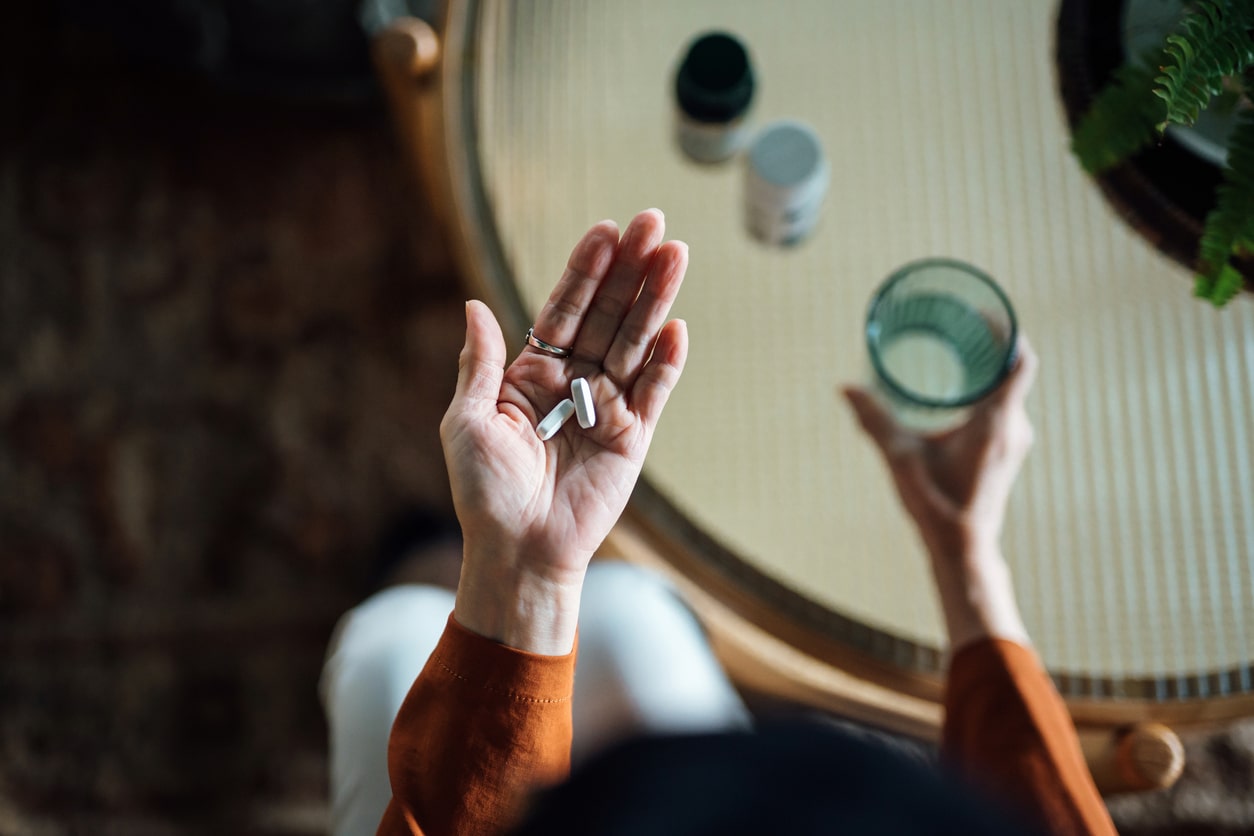If you could take a daily, over-the-counter supplement that works as well as Ozempic without side effects, would it be a no-brainer choice for you and your health? Enter Berberine, a supplement fast-tracked to be “Nature’s Ozempic,” that has been making massive waves online and on social media for its weight loss benefits. Here’s everything you need to know about it, including side effects, price, and how it works.
Disclosure: As usual, I write posts like these to give you information on trending health supplements, not to try to sway your opinion or force you to make a decision about your health. If, after reading, you decide you want to give Berberine a test drive, please feel free to ask your physician questions or express your concerns before you begin a supplement regimen. Okay, let’s dive right in!
I’m all in for an easy, effortless way to lose weight, especially if I can add it to my already-daily supplement regimen. And if it causes little to no side effects (read more on them below), I’m all in even more. Berberine came zooming onto my social media radar as women have been promoting its weight loss benefits and showing their results. As a lady who always wants all of the details and backstory on the newest weight loss trends, I’ve scoured the internet to give you the details.
First, What’s Berberine?

Believe it or not, Berberine has been around for a while, although its popularity has only increased in the past couple of months. In a “tell it to me like I’m five” way, it’s a chemical that can be found in the bark, twigs, leaves, and roots of plants including goldenseal, goldthread, Phellodendron, Oregon grape, and tree turmeric, plus the shrub group, Berberis.
It’s been used for years in Ayurvedic and Chinese medicine as an antimicrobial and antiprotozoal treatment. Due to its bright, golden hue, it’s also been used as a dye throughout history.
In a “tell it to me like I’m a rocket scientist” way, Berberine’s primary mechanism is that it may help to stimulate the enzyme adenosine monophosphate-activated protein kinase. AMPK is a master regulator of cellular energy homeostasis, which involves a wide range of biological processes, including protein and lipid metabolism and glucose regulation.
While it’s a yellow, bitter-tasting plant alkaloid, studies feel it has several potential health benefits, including strengthening our hearts, killing bacteria, and reducing swelling. And if that wasn’t enough reason to give it a try, users have also found benefits for helping with diabetes, lowering cholesterol, canker sores (am I the only one who doesn’t dig that word?), burns, and liver disease.
But it’s making headlines today because it may help reduce cravings and keep our blood sugar levels in check so we don’t binge eat. With the increase in demand for Ozempic (and Wegovy as well), folks who may not want to try the prescription, don’t want to pay steep Rx price, or are unable to find it have been looking for alternatives that provide the same benefits, and Berberine has caused an internet sensation for its similarities.
How Does Berberine Work?

While there haven’t been many extensive studies to back up the claims – and keep in mind that most of the benefits studies have been on mice – one study has shown heart health benefits as well as those for weight loss.
In addition, studies have shown evidence that it may work as well as some anti-diabetic drugs (if you’re diabetic, please don’t quit taking your medicine because of these studies and talk to your doctor before changing your medicine regimen). A 2008 study of 116 people showed that fasting blood sugar was lowered by 20%.
Even before that, a study of people with obesity showed that using Berberine for 12 weeks (a total of 500 milligrams three times a day) caused them to lose five pounds and 3.6% of their body fat.
Cost of Barberine
Using the cost of Ozempic as a reference (around $1,000 for a 30-day supply), Berberine, by comparison, costs anywhere from $16-$50 for the same time frame. Of course, the cost depends on the brand you choose and the dosage per capsule.
How Much Should I Take?
The recommended regimen is taking 900 to 2,000 milligrams of Berberine per day (not in one dose, but several). And while it has been shown that there are no short-term negative effects of using it, long-term studies have not been done.
Berberine Side Effects

While side effects for any drug or supplement are unique to each of us, there are more common ones associated with Berberine:
- Gastrointestinal side effects may occur, including diarrhea, constipation, cramping, flatulence, and stomach upset.
- Berberine may increase the risk for hypoglycemia in high doses.
- A high potential of interacting with a number of drugs. Some of these interactions increase the chance of serious complications.
Disclaimer: If you’re considering adding Berberine to your daily supplement list, we highly encourage you to consult with your healthcare provider first. This article is not intended to diagnose or recommend treatment for any ailment, from weight loss to diabetes to heart disease; it’s for informational purposes only.
Read Next:
How You Feel After Your Workout Can Offer Clues About Your Physical Health







